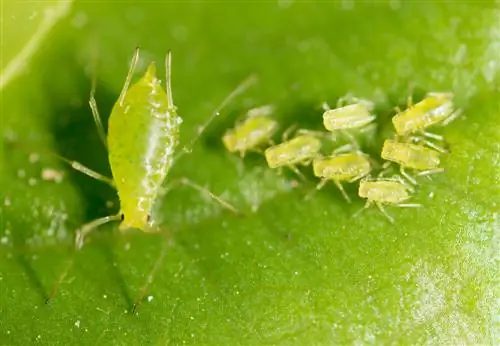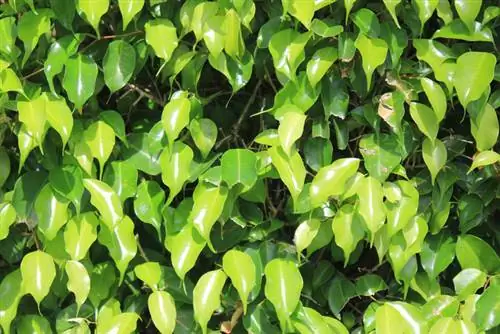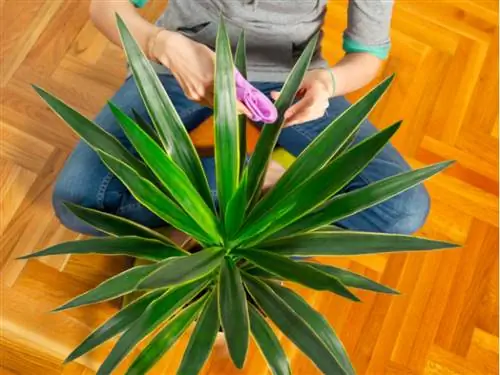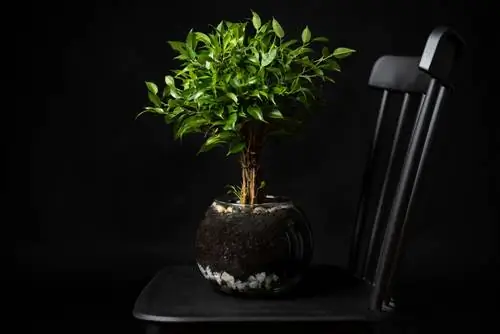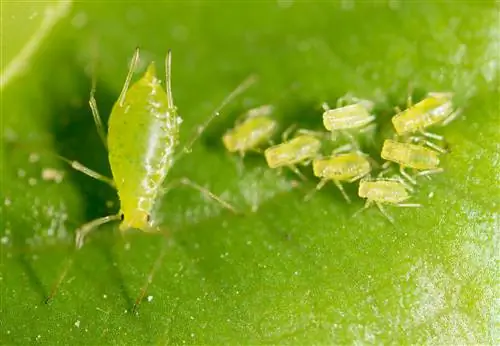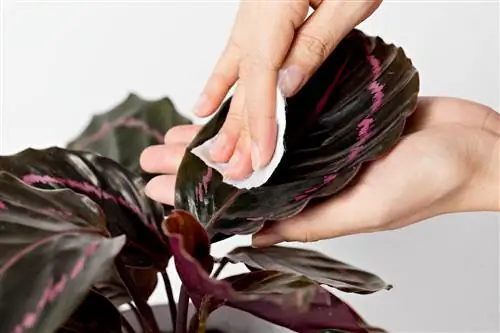- Author admin leonars@hobbygardeners.com.
- Public 2023-12-16 16:46.
- Last modified 2025-01-23 11:22.
If the colorful Japanese maple in the garden has sticky leaves, it not only looks unsightly, but is also a sign of an aphid infestation. We show what you can do about it and how you can prevent the problem.
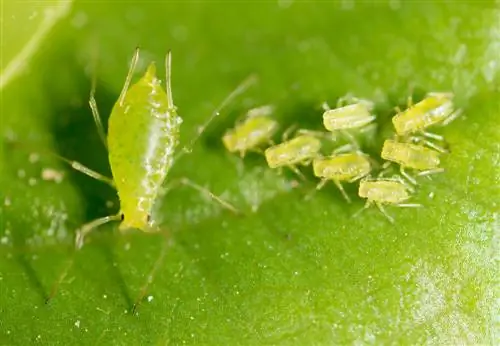
What can you do about sticky leaves on the Japanese maple?
Sticky leaves on the Japanese maple are a sign of aphid infestation. To treat this, soapy water can be made from soft or curd soap and sprayed onto the affected leaves. As a preventive measure, mixed cultures can be created and natural enemies of pests, such as ladybirds, can be attracted.
Why are Japanese maple leaves sticky?
Sticky leaves on the Japanese maple are a clear sign that the tree - regardless of whether it grows in the garden or in a container or is cultivated as a bonsai - isinfested with aphids. These pests on maple colonize the leaves, but can also spread to the shoots. Then they secrete sticky honeydew, which coats the parts of the plant.
What can you do if the Japanese maple has sticky leaves?
Sticky leaves on the Japanese maple can usually be quickly remedied. Soapy water, which can be easily made from liquid or solid soft soap or alternatively from curd soap and then sprayed onto the sticky leaves:
- Dissolve 50 g soap in 1 liter of hot water
- Let the soap solution cool and pour it into a spray bottle
- spray the areas infested with aphids several times very generously with the soapy water
If you don't want to mix yourself, use a ready-made product.
Should you remove sticky leaves from Japanese maple?
The leaves as such, unlike, for example, dead branchesdo not need to be removed. Only the pests that cause the maple tree need to be fought.
Is it normal for the Japanese maple to have sticky leaves?
Sticky leaves on the Japanese maple arenot normal, but a sign that the tree is infested with aphids. These are often very visible to the naked eye before the sticky leaves are noticed, as they occur in clusters.
How to prevent sticky leaves?
To prevent sticky leaves, aphids must be prevented from colonizing plants in the garden. If you don't want to usebiocidal products, you have the following options:
- set toMixed crops (aphids prefer to colonize several plants of the same species)
- Attract ladybirds to the garden as natural enemies of aphids
Can sticky leaves be transferred to other plants?
Although sticky leaves cannot jump from one plant to another, the aphid as the cause canTransmit diseases Combating such a pest infestation quickly and effectively is therefore very important To prevent damage to other plants.
Tip
Tea tree oil: effective against aphids and ants
Both aphids and ants, which are crazy about the sticky honeydew and feed on it with enthusiasm, run away when they smell tea tree oil. Diluted with water (10 drops in 500 ml) and sprayed on with a spray bottle, tea tree oil is an effective and environmentally friendly remedy against unpleasant pests.

